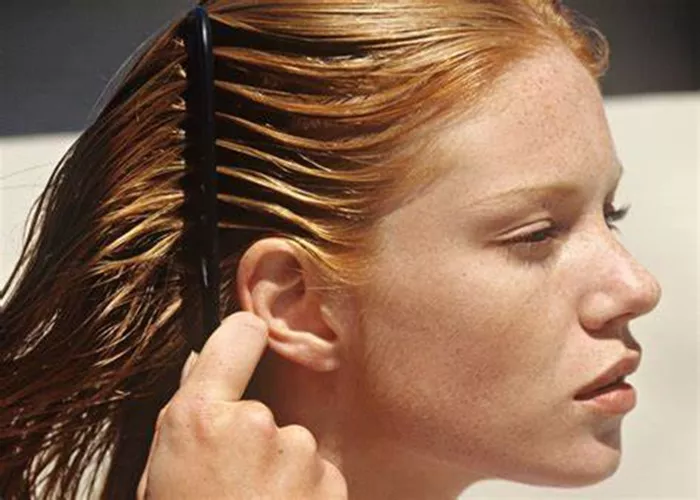Hair loss is a common concern that affects millions of people worldwide, and one of the frequently overlooked factors contributing to excessive shedding is greasy hair. When your scalp becomes excessively oily, it can create an environment that weakens hair follicles, clogs pores, and even leads to inflammation—all of which can accelerate hair loss. If you’ve ever wondered why your hair seems to fall out more when it’s greasy, this article will explore the underlying causes, the science behind it, and the best ways to manage and prevent this frustrating issue.
The Science Behind Greasy Hair and Hair Loss
Sebum, the natural oil produced by sebaceous glands in the scalp, plays a crucial role in maintaining healthy hair. It moisturizes the scalp, protects hair strands from damage, and keeps the skin barrier intact. However, when these glands become overactive, they produce too much sebum, leading to a greasy scalp.
Excess sebum can mix with dead skin cells, sweat, and environmental pollutants, creating a buildup that clogs hair follicles. This clogging can suffocate the follicles, weakening them over time and leading to a condition known as follicular miniaturization—where hair strands become thinner and eventually stop growing altogether. Additionally, an oily scalp can become a breeding ground for bacteria and fungi, such as Malassezia, which is linked to dandruff and seborrheic dermatitis. These conditions cause inflammation, further damaging hair follicles and increasing hair shedding.
Hormonal imbalances, particularly an increase in androgens like dihydrotestosterone (DHT), can also trigger excessive sebum production. DHT binds to hair follicles, shrinking them and shortening the hair growth cycle, which is a primary factor in androgenetic alopecia (pattern hair loss). When combined with an oily scalp, this process accelerates, leading to more noticeable hair thinning.
Common Causes of Oily Scalp and Hair Loss
Several factors contribute to an excessively greasy scalp, and understanding them can help in addressing the root cause of hair loss.
Overwashing or Undershampooing
While it may seem counterintuitive, washing your hair too frequently can strip the scalp of its natural oils, causing the sebaceous glands to overcompensate by producing even more sebum. On the other hand, not washing your hair enough allows oil, dirt, and product buildup to accumulate, clogging pores and leading to hair loss. Finding the right balance is key—typically washing every 2-3 days with a gentle shampoo is ideal for most people.
Poor Diet and Hydration
A diet high in processed foods, sugars, and unhealthy fats can increase sebum production. Nutrient deficiencies, particularly in zinc, vitamin D, and B vitamins, can also affect scalp health. Staying hydrated helps regulate oil production, so inadequate water intake may worsen greasiness.
Hormonal Fluctuations
Hormonal changes during puberty, pregnancy, menopause, or due to conditions like polycystic ovary syndrome (PCOS) can lead to an overproduction of oil. Androgens, in particular, stimulate sebaceous glands, making the scalp oilier and more prone to hair thinning.
Stress and Its Impact on Sebum Production
Chronic stress elevates cortisol levels, which can disrupt the balance of oil production in the scalp. Stress also triggers inflammatory responses that may worsen conditions like dandruff or scalp eczema, contributing to hair shedding.
Using Harsh Hair Products
Sulfates, silicones, and heavy styling products can irritate the scalp and disrupt its natural oil balance. Some conditioners and serums may also weigh hair down, making it appear greasier faster.
How to Treat and Prevent Hair Loss Due to Greasy Hair
Managing an oily scalp requires a combination of proper hair care, dietary adjustments, and, in some cases, medical treatments. Here are the most effective strategies:
Choosing the Right Hair Care Products
Opt for a clarifying or balancing shampoo with ingredients like salicylic acid, tea tree oil, or ketoconazole, which help control oil and reduce fungal growth. Avoid heavy conditioners near the scalp—instead, focus on applying them to the mid-lengths and ends.
Scalp Exfoliation and Deep Cleansing
Regular exfoliation removes dead skin cells and excess oil. Use a scalp scrub or a brush designed for exfoliation once a week to prevent clogged follicles. Apple cider vinegar rinses can also help restore pH balance and reduce greasiness.
Diet and Supplements for a Healthier Scalp
Incorporate foods rich in omega-3 fatty acids (salmon, flaxseeds), antioxidants (berries, leafy greens), and zinc (nuts, legumes) to support scalp health. Supplements like biotin, vitamin D, and saw palmetto (which may help block DHT) can also be beneficial.
Medical Treatments for Severe Cases
If over-the-counter solutions don’t work, consult a dermatologist. They may prescribe topical treatments like minoxidil, anti-androgen medications (for hormonal hair loss), or antifungal shampoos for conditions like seborrheic dermatitis. In some cases, laser therapy or platelet-rich plasma (PRP) treatments can stimulate hair growth.
Conclusion
Greasy hair and hair loss often go hand in hand, but with the right approach, you can manage both effectively. By understanding the root causes—whether hormonal, dietary, or due to improper hair care—you can take targeted steps to restore balance to your scalp. Consistency is key; adopting a gentle yet effective hair care routine, maintaining a nutrient-rich diet, and seeking professional help when needed can make a significant difference in reducing excess oil and preventing further hair thinning.
If you’ve been struggling with persistent hair loss despite trying these methods, consulting a trichologist or dermatologist can provide personalized solutions tailored to your scalp’s unique needs. Remember, a healthy scalp is the foundation of strong, vibrant hair—so taking proactive steps today can lead to thicker, healthier hair in the long run.
Related Topics:
- Will Iron Help My Hair Grow Back? A Comprehensive Guide
- Is a Steam Straightener Bad for Your Hair?
- Is It Normal for Hair Loss After Pregnancy


